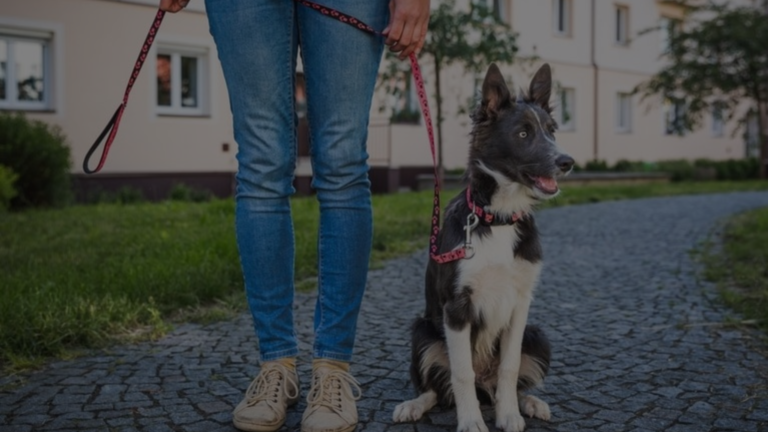If you’ve ever wondered, “Why does my dog lick the grass?” you’re not alone. Many pet owners have observed this peculiar behavior and wondered about its significance. In this article, we’ll delve into the fascinating world of canine behavior, exploring the reasons behind this seemingly quirky habit.
Table of Contents
ToggleThe Curious Case of Grass Licking
Natural Instincts
Dogs, like their wild ancestors, may have an innate instinct to explore and taste different substances, including grass. This behavior could be a remnant of their survival instincts, helping them discover new scents and tastes in their environment.
Nutritional Needs and Grass Consumption
Seeking Essential Nutrients
Believe it or not, dogs can turn to grass due to a lack of nutrients in their diet. Although a well-balanced canine diet should provide all essential nutrients, some dogs may develop cravings for certain elements. Hay can act as a natural dietary supplement, offering minerals or fibers that your dog may be lacking.

Fiber Fixation
Hay is rich in fiber, and some dogs can naturally eat it to aid digestion. In the wild, canines often consume plant matter to balance their diet and promote healthy digestion. While domestic dogs have evolved, this instinct may still be present, causing them to graze occasionally.
Soothing an Upset Stomach
Believe it or not, dogs might instinctively turn to grass as a natural remedy for an upset stomach. The coarse texture of the grass could help induce vomiting, providing relief when they’re not feeling their best.
Boredom and Entertainment
Just like humans, dogs can get bored. Licking or chewing on grass might be a form of entertainment for them, especially if they spend a significant amount of time alone in the yard.
Exploration and Play
Dogs explore the world through their senses, and licking grass is one way they engage with their surroundings. It is a playful and curious behavior that allows them to experience the textures and flavors of their environment.
Is Grass Licking Harmful?
Generally Safe Behavior
In most cases, grass licking is a harmless behavior. However, it is very important to monitor your dog’s overall health and well-being. If the behavior becomes excessive or is accompanied by other related symptoms, it is recommended to consult a veterinarian.
Potential Risks
While grass itself is not harmful, pesticides or chemicals on the grass can pose risks. Ensure your yard is free from harmful substances, and consider providing a designated safe space for your dog to explore.
Addressing the Issue
Balanced Diet
To rule out nutritional deficiencies, ensure your dog is on a well-balanced diet. Consult with your veterinarian to discuss any dietary adjustments or supplements that may be beneficial for your furry friend.
Regular Vet Check-ups
Schedule regular check-ups with your veterinarian to monitor your dog’s overall health. They can provide insights into your dog’s behavior and detect any underlying issues that may contribute to grass licking.

Interactive Toys and Activities
Combat boredom by providing your dog with interactive toys and engaging activities. Mental stimulation is as crucial as physical exercise for a dog’s well-being.
Safe Outdoor Environment
Create a safe outdoor environment by eliminating potential hazards and using pet-friendly products in your yard. This ensures that your dog can explore without encountering harmful substances.
Resources & References
Recommended Articles
Recommended Video
If Your Dog Eats Grass: Understanding Canine Behavior
Finally, while there may not be a definitive answer to the question of why dogs lick grass, understanding the various possibilities allows pet owners to better care for their beloved companions. Be aware, pay attention to your dog’s needs, and create a loving environment for them to thrive.
FAQs – Why Does My Dog Lick the Grass
Why does my dog lick the grass on walks?
Dogs lick grass for various reasons, including inducing vomiting, seeking nutrients, or simply enjoying the taste or texture.
Why is my dog frantically licking the ground?
Frantic licking of the ground could indicate an upset stomach, anxiety, or the presence of something irritating on the ground.
Is it OK for dogs to eat grass?
Occasional grass eating is generally harmless for dogs, but excessive consumption could indicate nutritional deficiencies or underlying health issues.
Do dogs eat grass when they have worms?
While grass eating is not a diagnostic sign of worms, it may be a way for dogs to soothe an upset stomach caused by parasites.
Why is my dog licking grass and leaves?
Dogs may lick grass and leaves for the same reasons they lick grass alone, including inducing vomiting, seeking nutrients, or enjoying the taste or texture.







